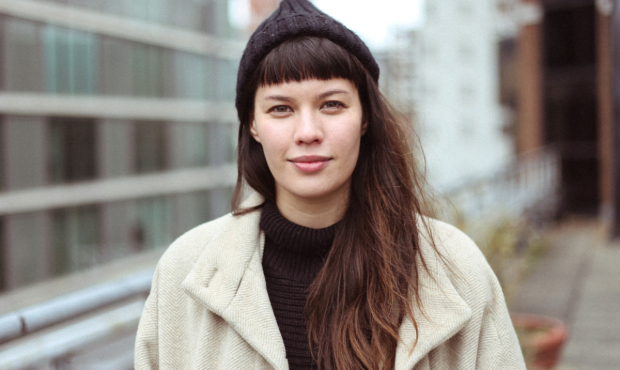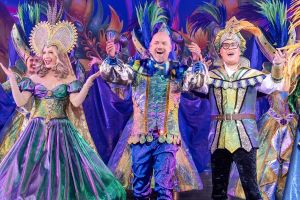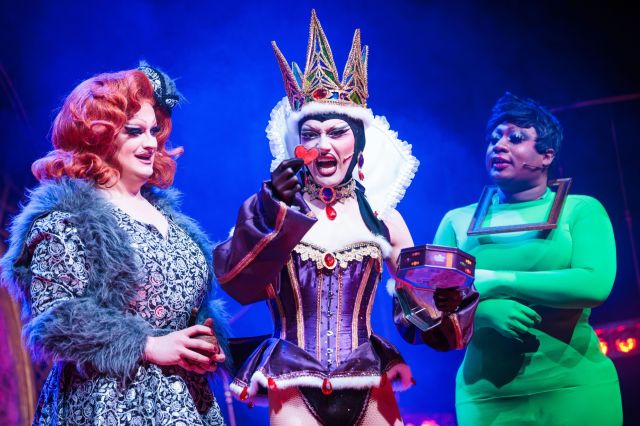Rising star: Big Guns playwright Nina Segal
As her second play is staged at the Yard, Nina Segal explains how she turned playwright from producer and why she’s such a fangirl of the Yard Theatre

Nina Segal began working as a producer for venues and companies such as the Donmar Warehouse, the Gate Theatre and 59E59 Theaters. Her career turned to playwriting last year after her debut full-length play In the Night Time (Before the Sun Rises) was staged at the Gate Theatre. The piece was an apocalyptic hour-long vision of two parents trying to stop their baby crying and one reviewer wrote that Ben Kidd’s production elevated Segal’s play into 'a work of art'. Her second, Big Guns, deals with the way we experience violence in society today and is due to open this week at the Yard Theatre. It promises to be no less of an apocalyptic vision than the first.
How did Big Guns come about?
Jay Miller [artistic director of the Yard Theatre] saw In the Night Time, and asked me if I had another play. I said yes and we went through a process of him giving me notes on it. I thought he was being very supportive but had no real idea he wanted to put it on at the theatre. It was taken to the point where – at both the Gate and the Yard – the ADs said ‘who would you want to direct this’ before I realised they wanted to stage it.
What inspired you to write the play?
I went slightly mad for a bit, quit my job at the Gate and spent two months living in a van in Holland. I hadn’t really been interacting with humans and was writing my first play. Then I moved to Berlin for two months and went from never speaking to more than two people in one day to suddenly being back in a city and being ‘Oh god, this is the modern world again’. I also suddenly had WiFi.
Was that a bit of a shock?
It was at the time when the first ISIS beheading videos were being covered in the media. It felt like this really strange time because the news sites didn’t know how to deal with them. This was what started the play for me: this question of how violence and the violence of the distant world intersects with the way the media works in the west. We live these very protected lives in the west where we can watch these videos and go: ‘how can that happen?’. But there’s actually very little sense of real threat to our actual bodies. The way we engage in threat is through this global understanding of the fact that it is out there, but it doesn’t affect me directly.
So violence is an important thread in the play?
Big Guns looks at how we let violence in. And what responsibility there is to be aware of violence in the world but not to share it. Someone called it an internet play, which I initially shuddered at, but actually the more I thought about it the more I realised it is a play about the way we live now and that is so indivisible from the fact that the internet is so pervasive in our lives. The presence of the internet has started to let violence into our lives in a different way.
So is the play pretty dark?
Sometimes when I hear Big Guns read out, I am surprised that I have written something so horrific. But part of my impetus in writing it was to explore the space between my position as a person who poses no violent threat to anyone and what I can get away with saying, because I am working in a fictional world. I also find it interesting how the internet makes it possible to prosecute people for ideas.
You were originally a producer, had you always wanted to be a playwright?
I honestly just didn’t think it was a possibility. I came out of university and I needed to get a job. I knew I wanted to be involved with theatre and I just went: ‘How do I get into it and who’s going to pay my rent?’ The idea of being 21 and deciding to write a play was just so alien.
Did being a producer give you the confidence to try writing?
The producing side of it showed me that there’s not a great secret to the process. I had a really interesting conversation at the Gate when I handed in my notice about whether or not there is a division between ‘administrators’ – I hate that word but that was the word that was used – and the people who are more in the room making the theatre. I don’t think there is. It’s just about time and priorities. But it was really helpful for me to spend five years making theatre in a way that was not as hands on as I make it now. Also I think at 21 my plays would have been really, really bad.
You’ve been living and working in New York recently, is it harder to get plays on there?
I have a play coming up in New York next summer that I’m making with a company because that seems to be how to get slightly more experimental work – the sort of work a bit like mine – on in New York. It has made me really aware what a huge privilege it is over here to have, as meagre as it can seem, the funding system that we do.
Big Guns is on at the Yard, do you feel like it’s a good fit for the play?
I am such a fangirl of the Yard. I am very excited for this play to go on there because I feel like they’ve built an audience based on performance art and on weird club nights and strange things with no particular traditional structure. Jay’s been doing amazing work to transition into a theatre that does stage plays more, and I am really excited to show this work to an audience that is potentially more primed to have something that doesn’t have a traditional structure. My plays start from a question of form and what that relationship is with the audience. It never starts from: ‘I want to tell the story about these two characters who do this’.
Big Guns runs at the Yard Theatre from 24 March to 8 April, with previews from 21 March.












